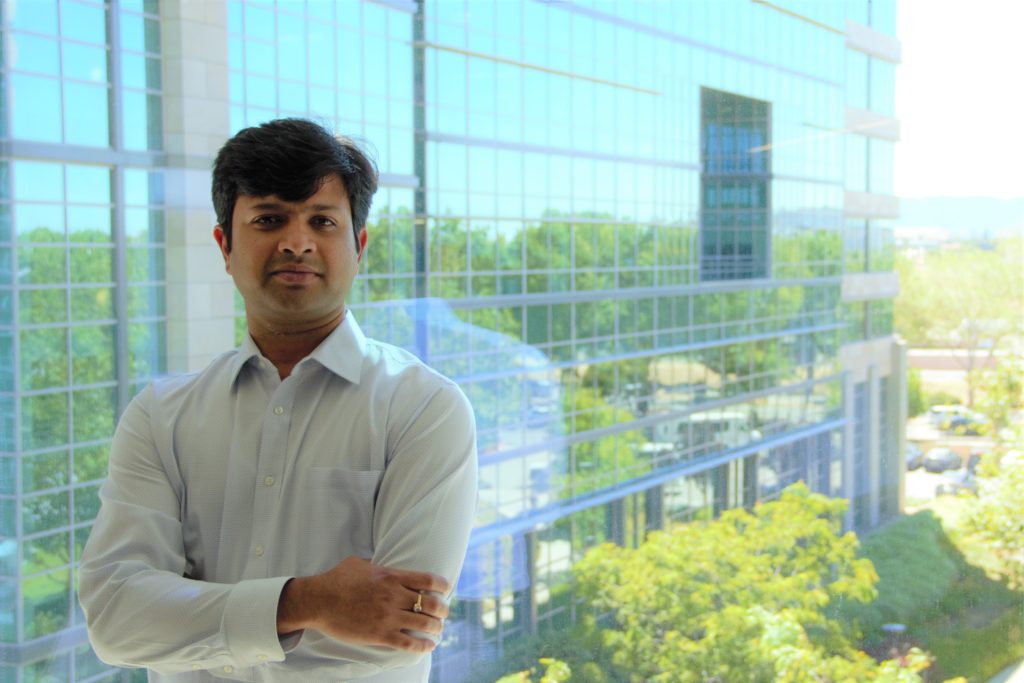
Murali Sangubhatla is a principal software engineering manager in the Bay Area, who works on our Azure Networking team. As one of the early engineers on Azure Networking, he was responsible for building important functionality into the product, and most recently founded the Azure Firewall team. We sat down with Murali to discuss how he interviews candidates, and how they can best prepare for a technical interview—either here at Microsoft or at another leading tech company.
What are the most common pitfalls or mistakes candidates make during interviews, and how can they avoid them?
First, there’s anxiety that prevents people from acting like themselves. And when interviewing at a big company like Microsoft, it’s perfectly normal to be nervous. But you shouldn’t freeze up to the point that you don’t show who you really are. Many candidates do their homework, are skilled, smart, and savvy, but because of anxiety, they lose out.
My advice, try to relax and exist in the moment. Be yourself, and be aware of what is happening now. Pay attention to what the interviewer is saying, and respond genuinely.
Second, some candidates don’t prepare. This is the worst mistake you can make.
Your interviewer can tell if you haven’t done your homework. If you don’t understand what the company’s products, culture, and values are, it will show. I advise thoroughly researching the company and the team you are hoping to join. If possible, connect with the hiring manager and team members before the interview. Establish relationships. Ask questions. Get to the point where you can demonstrate your knowledge—and passion for the position—during the interview.
What is your process for determining candidate readiness and hiring team members?
I first like to first understand what stage of the process they are in. If you are reaching out to a lot of places—Microsoft included—that’s okay. But there is a big difference between genuinely looking and just putting your feet in the water. Once I sense they are truly motivated, I want to know why they are leaving. What are their motivations for making a change? Why Microsoft? Why my team?
I then try to get a feel for project experience. Are they leaders, drivers, or enablers of a team? If they successfully demonstrate their ability to contribute, then I arrange for a technical screen. Once they pass that, we start the on-site interviews.
At Microsoft, for on-site interviews we ask candidates questions about technical leadership, coding skills, and problem-solving aptitude. We try to get a holistic picture—of the person’s soft as well as technical skills—through meetings with a couple of team members.
In a sense, we’re looking for a paradox. We want people to be incredibly optimistic that they can make a big impact on the world. But we also want them to be capable of reversing and to be extremely critical when solving problems. They have to keep the big picture in mind, yet take the small, concrete steps that drive results.
How do you decide if someone is right for your team?
Successful candidates look into your eyes, they are happy to be there, and bring in a growth mindset. I also like for a candidate to be impatient in a positive way. I’m a results-oriented guy. I want people with pragmatic attitudes who are eager to get things done.
During the interview, I like to be passive. I want the candidate to be proactive in leading me through the software development life-cycle requirements, from design to coding, to testing.
Do you look for people who have mastered skills, or who have the ability to grow into roles?
Obviously, candidates that possess both skills and aptitude are best. I love to get those. But for junior and mid-level jobs, I will hire candidates even if they lack specific skill sets. As long they have the hunger and have demonstrated that they know the core concepts of computer science, I know that they can grow into the code expertise we are looking for. Senior candidates, on the other hand, need to have both domain expertise and aptitude. That’s what makes them capable of senior leadership.
What was your experience when you interviewed at Microsoft?
It was my first interview when I came out of college. I did fine until the fourth interview. In that one, I did not make a good impression. I knew that as it was happening. But I told myself, “Okay, I’ll make the most of the time remaining. I’ll focus and stay in the moment.” So I tried to simply enjoy being at Microsoft. Microsoft had always been my dream company. I was grateful simply to be there. That attitude enabled me to focus on what was happening in the interview rather than worry about outcomes—and eventually led to an offer.
If you are interested in interviewing for positions at Microsoft across the Bay Area, learn more about our open roles here: https://aka.ms/MicrosoftBayAreaCareers



